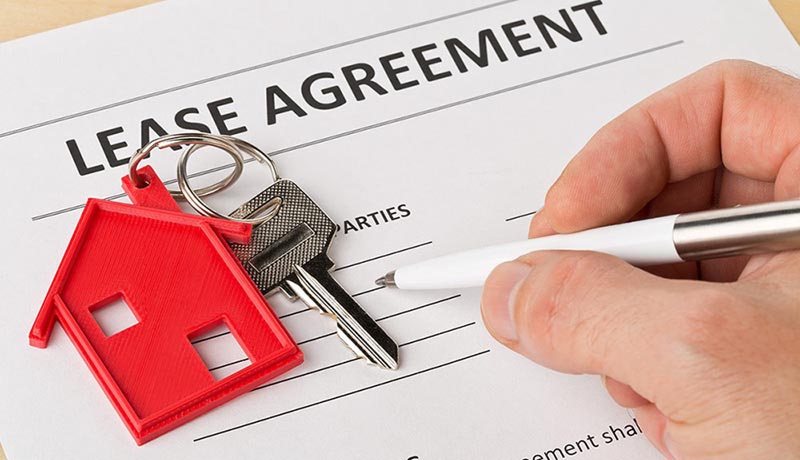Property Lease in Thailand

Property Lease in Thailand is a viable option for both foreigners and Thai nationals who want to secure land or property for long-term use without full ownership. Under Thai law, foreigners are prohibited from owning land outright but can enter into leasehold agreements to use property for extended periods. This type of arrangement is commonly used for residential purposes, commercial ventures, and investment properties.
1. Leasehold Agreement: Key Features
A leasehold is a contractual arrangement where one party (the lessor) grants another party (the lessee) the right to use the property for a specified term, without transferring ownership. The key features of leasehold agreements in Thailand include:
a) Duration of Lease
The maximum term for a property lease is 30 years, with an option to renew for an additional 30-year period. In some cases, leases can be renewed for a second 30-year term, but these renewals are subject to renegotiation with the landowner. Though commonly believed, automatic renewal clauses are not guaranteed by law and may not be legally enforceable without registration.
b) Registration Requirement
Any lease longer than three years must be registered with the Land Department to be legally enforceable against third parties. Unregistered leases over three years are still valid between the two parties but are enforceable for only the first three years of the agreement. Registration provides a higher level of legal security and ensures the lessee’s rights are protected for the full term of the lease.
c) Leasehold vs. Freehold
For foreigners, a leasehold is often the only way to legally hold long-term interests in land. Freehold ownership is only available to Thai nationals or foreigners who purchase condominiums, as foreigners are generally prohibited from owning land in Thailand.
2. Foreigners and Property Leasing
While foreigners cannot own land, they can lease land for up to 30 years, with an option to renew. This makes leasing an attractive option for foreigners who want to build a home or invest in commercial property in Thailand. For added security, foreigners often combine leasehold agreements with ownership of the building or structure built on the leased land. The lessee can own any structures on the land while leasing the land itself from a Thai national or company.
a) Leasehold Structures
A foreigner can enter into a leasehold agreement with a Thai landowner and simultaneously register ownership of any building constructed on the leased land. Ownership of the building can be separate from the land lease, and the foreigner can sell or transfer the building.
b) Business Leasing
For businesses, especially in industries where foreign ownership of land is restricted under the Foreign Business Act, long-term leasing offers a way to establish operations in Thailand. Many commercial properties, including offices, retail spaces, and industrial land, are leased under such arrangements.
3. Legal Considerations and Protections
Leasing property in Thailand requires careful attention to legal details to ensure long-term protection for the lessee.
a) Due Diligence
Before entering into a lease agreement, it is critical to conduct due diligence on the property. This includes verifying the title deed, checking for any encumbrances (such as mortgages or liens), and confirming that the property has the proper legal standing for lease.
b) Lease Registration
Registration of the lease with the Land Department provides legal protection and ensures the lease is enforceable for the full 30-year term. In case of disputes or transfer of ownership, a registered lease grants the lessee greater legal standing.
c) Inheritance Rights
In case the lessee passes away during the lease term, the lease can be inherited by the lessee’s heirs if this is stipulated in the lease agreement and properly registered. Without such stipulation, the lease may terminate upon the lessee’s death.
4. Costs and Taxes
When entering into a lease agreement, there are several costs and taxes involved:
a) Registration Fees
The cost to register a lease with the Land Department is generally 1% of the total lease value. Both the lessee and lessor may negotiate who will bear this cost.
b) Withholding Tax
If the lessor is a company, a withholding tax of 5% of the total rental amount must be paid. This amount is usually deducted by the lessee when making payments to the lessor.
c) Lease Termination
If the lease is terminated early, the lessee may lose their rights to the property and any investment made in it, especially if termination occurs before the lease term is complete or before building ownership is transferred. Early termination clauses should be carefully negotiated.
5. Renewal and Extension of Lease
While lease terms can be renewed, it is important to note that renewals are not automatically enforceable unless a new lease is formally registered. A lease extension must be negotiated and registered with the Land Department to ensure continued legal protection for the lessee. Some developers and landlords may offer renewal clauses, but they are subject to agreement at the time of renewal.
Conclusion
A property lease in Thailand provides a secure and flexible option for both foreigners and Thai nationals seeking long-term use of land or property without ownership. For foreigners, particularly, leaseholds offer a way to invest in property and build a home while adhering to Thailand’s land ownership laws. Careful negotiation, due diligence, and lease registration are critical steps in securing long-term property rights and avoiding potential legal pitfalls. Properly executed leases can offer significant legal security for up to 30 years, with options for extension, making them an attractive alternative to full ownership.
Leave a Reply